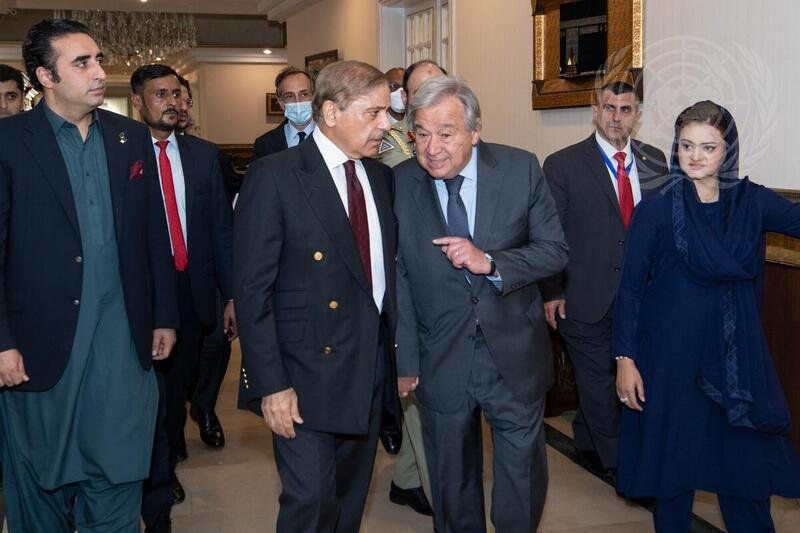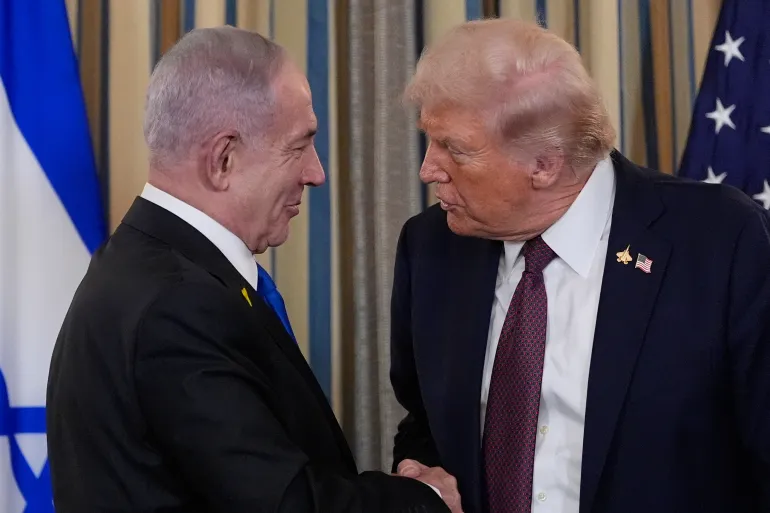UN Chief Guterres Warns Prime Minister Shehbaz Sharif Against Military Aggression Over Pakistan’s Provocative Actions
Amid Pakistan’s provocative behavior, UN Secretary-General António Guterres spoke with Pakistani Prime Minister Shehbaz Sharif for the second time in a week on Monday, urging him to refrain from any form of military aggression.
UN Chief Guterres Warns Prime Minister Shehbaz Sharif Against Military Aggression Over Pakistan’s Provocative Actions
UN Chief Guterres Warns Prime Minister Shehbaz Sharif Against Military Aggression Over Pakistan’s Provocative Actions
Amid Pakistan’s provocative behavior, UN Secretary-General António Guterres spoke with Pakistani Prime Minister Shehbaz Sharif for the second time in a week on Monday, urging him to refrain from any form of military aggression.
Tensions between India and Pakistan have reached their highest levels in years following the Pahalgam attack, for which India has blamed Pakistan. Pakistan has taken several provocative steps, including frequent missile tests and troop deployments near the border. During the call, Guterres told Shehbaz that the UN platform remains open for resolving disputes between India and Pakistan.
According to Pakistan’s state media, Shehbaz welcomed Guterres’s engagement with both countries and his call for de-escalation. However, despite the UN chief’s appeal to avoid escalating tensions, Pakistan continued spreading false narratives.
During the call, Shehbaz claimed that India has yet to provide any evidence of Pakistani involvement in the Pahalgam attack and accused India of engaging in its own provocative actions. He also expressed “deep concern” over what he described as India’s efforts to politically influence international financial institutions in ways that harm Pakistan’s economic interests.
Despite Pakistan’s continued false claims, the UN Security Council (UNSC) on Monday held a closed-door session and placed Pakistan under increased scrutiny. Council members expressed concern over Pakistan’s multiple missile tests and threats of nuclear strikes against India. They rejected Pakistan’s assertion that the Pahalgam attack was a "false flag operation." The attack has been claimed by The Resistance Front (TRF), a Pakistan-based affiliate of the terrorist group Lashkar-e-Taiba.
“Now Is the Time to Step Back from the Brink of Destruction”
In a separate press briefing, Guterres stated that current tensions between India and Pakistan are the highest in many years and warned that the time has come to step back from the brink of destruction. He emphasized that military conflict could quickly spiral out of control.
Guterres said, “Especially at this critical moment, it is essential to avoid a military confrontation that could easily escalate beyond control. Now is the time to exercise maximum restraint and pull back from the brink of destruction.”
Last week, Guterres also spoke with Indian External Affairs Minister S. Jaishankar about the Pahalgam attack, and they agreed on the importance of accountability. On Monday, Guterres reiterated that those responsible for the attack must be brought to justice.
He added, “Targeting civilians is never acceptable, and those responsible must face justice through a credible and legal process.”
However, Guterres also noted, “There is no military solution,” and offered UN mediation to help de-escalate tensions between India and Pakistan through diplomatic means.
Would you like this summary also formatted as a news-style article in Bangla or English?










